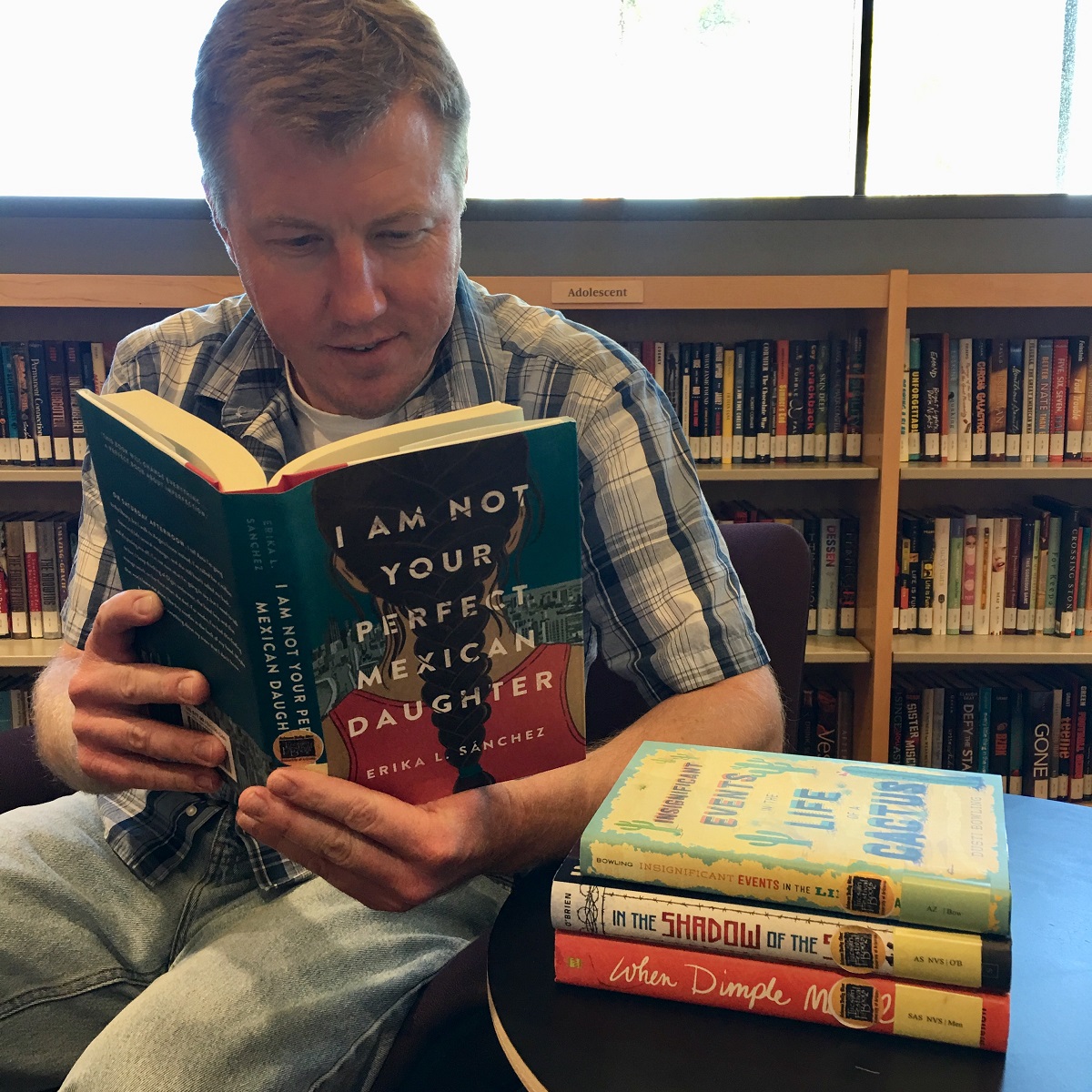By Dorea Kleker, The University of Arizona
This month’s WOW Currents focuses on four books whose authors will present at the 2018 Tucson Festival of Books: I Am Not Your Perfect Mexican Daughter, When Dimple Met Rishi, The Insignificant Events in the Life of a Cactus and In the Shadow of the Sun.
As of last week, I have lived in a rural community in Panama for a year. It has been a year of adventure and discovery, a year of navigating new ways of living and being without a library. To say that I’m ecstatic about returning to Tucson for The Festival of Books is a colossal understatement. When the list of festival authors arrived in my inbox, I practically memorized the list. I knew that I wanted to explore some of these books for this month’s Currents. I chose my books, ordered them on-line and thanks to the kindness of relative strangers, they found me in the middle of the rainforest. I’m reveling in the act of turning real pages rather than the endless monotony of finger swiping.
It’s an interesting time to be an American living abroad. With a fairly reliable internet connection, I can follow the news outside of our small jungle bubble. These days the stories I read often cause more pain than joy and leave me eager to retreat into my bubble. I can’t and I don’t. Nor do many in my new community and country.
It seems that every conversation with a stranger is filled with questions about the U.S.–current policies, practices and atrocities–and my opinions of these. Through my conversations, I witness firsthand how the outside worlds sees us we and do my best to offer a counter example. The majority of voters did not elect our current president; there are many who advocate for the presence of immigrants in our communities; we do believe in climate change; etc. (It’s a long list.) More than ever, I’m conscious of the stories I share and with whom I share them. I’m aware that I am one voice sharing one version of a story that can never represent the complexity of what it means to be American.
In I Am Not Your Perfect Mexican Daughter by Erika Sánchez, Julia is caught between the stories others tell about her and the stories she has come to believe about others. The stories others tell about her are that her mouth is too big, she’s too fat, she’d rather read books than socialize with family or go to church and doesn’t cook. The stories that she has come to believe about others are a mother who will never understand and a sister who is the perfect Mexican daughter.
After her sister is tragically killed, Julia begins to doubt whether or not she was as perfect as everyone assumed. As Julia digs deeper, both in the U.S. and in Mexico, she uncovers a host of unspoken stories that leave no family member untouched. She realizes that the stories we believe about others–and even those we tell about ourselves–are not always what they appear to be.
Chimamanda Adichie (2009) reminds us:
Stories matter. Many stories matter. Stories have been used to dispossess and to malign, but stories can also be used to empower and to humanize. Stories can break the dignity of a people, but stories can also repair that broken dignity.
Yes, stories matter. Telling stories that are both accurate and complex matters. But what happens when the real stories are carefully and intentionally hidden? Through her snarky, angry, vulnerable and brutally honest protagonist, Sánchez asks us to consider what we do with the stories we purposely and inadvertently discover and the stories of those who have passed away. Who do they really belong to and who has the right to tell them?
*Erika Sánchez will participate in three panels at TFOB: Parents Can Be a Pain: Clashing Generations and Expectations, Why We Need Complex and Diverse Characters, and Ni Santas, Ni Diablas, Solo Mujeres.
Adichie, C. (2009). The danger of a single story. TED Ideas worth spreading.
Journey through Worlds of Words during our open reading hours: Monday-Friday 9 a.m. to 5 p.m. and Saturday 9 a.m. to 1 p.m.


Is it based on a true story
Hi Jacky–while Erika Sanchez admits that there are aspects of Julia that mirror her own teenage self and family culture, the book is not based on any single true story. You might really enjoy listening to this short interview to hear more about this in her own words:
https://www.npr.org/2018/11/02/661044471/author-erika-l-s-nchez-on-why-shes-not-a-perfect-mexican-daughter